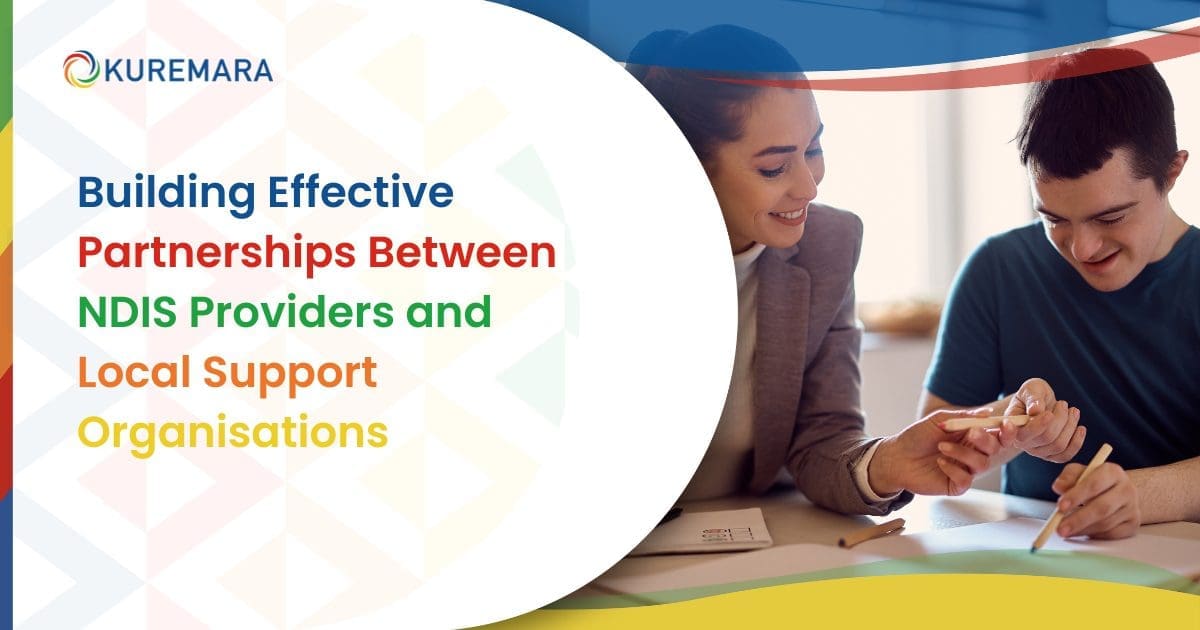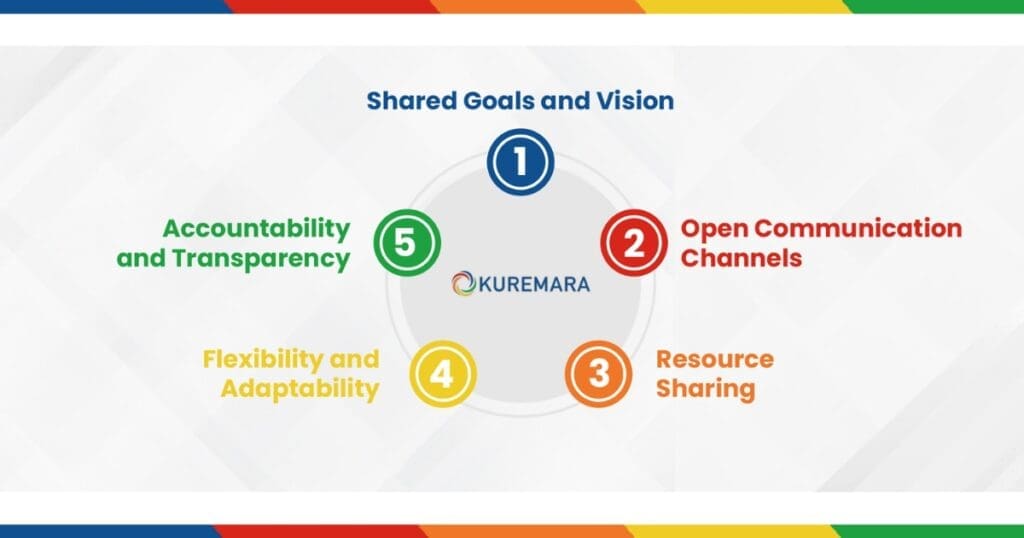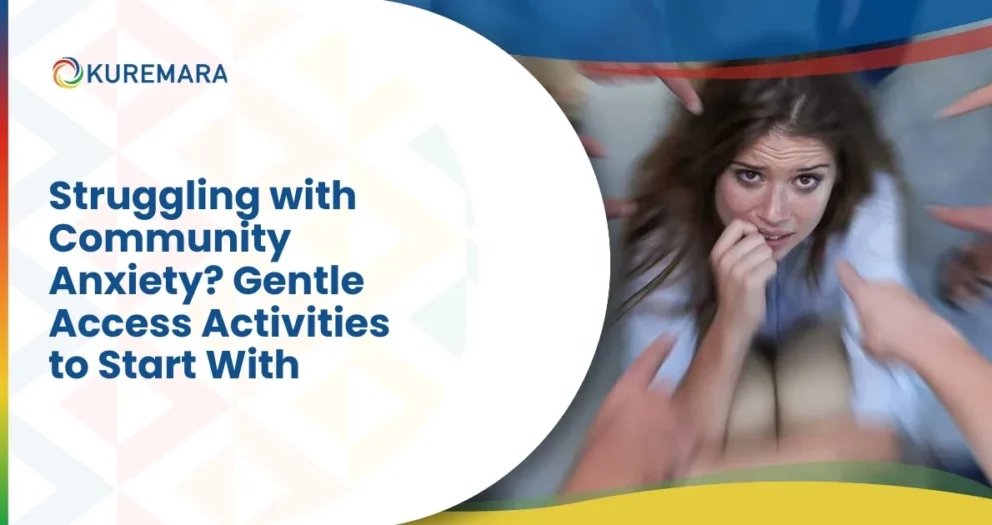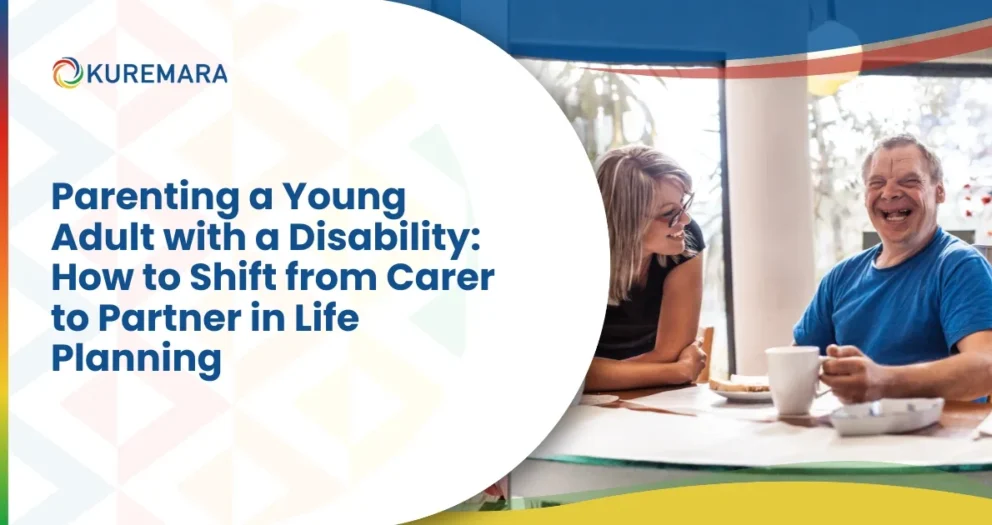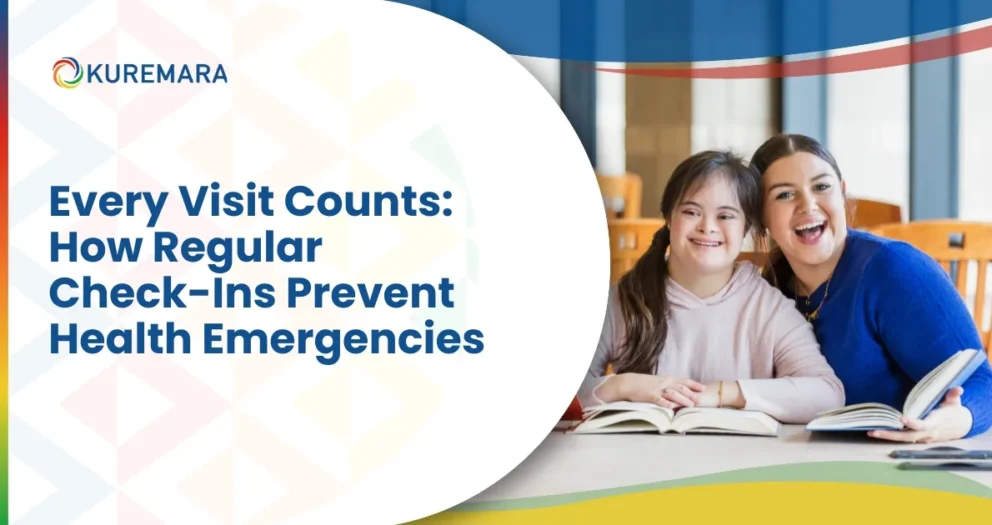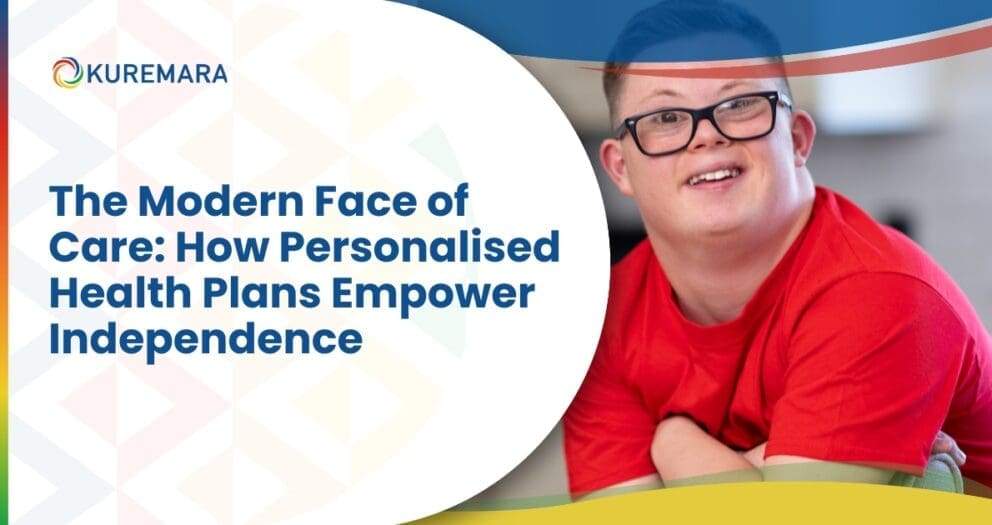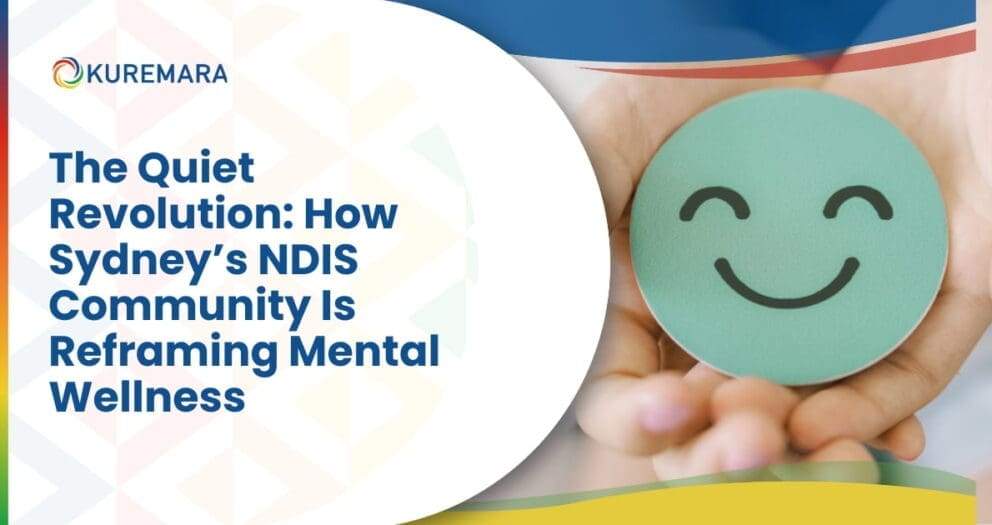The NDIS has transformed the lives of Australians with disabilities through its support since it came into being. However effective the NDIS providers may become within the NDIS, the intricate needs of the participants cannot solely be met by them. Partnerships between NDIS providers and local support organisations are core to attaining better outcomes and providing holistic, person-centered care to participants. Such collaborations give the providers access to all the strengths of local expertise and networks, which is a huge leap forward in delivering services.
In this blog, we’ll discuss why these partnerships are crucial for Kuremara as the registered NDIS Provider, how they will benefit NDIS participants, and the critical components of effective collaboration. By combining strong alliances, NDIS service providers and community organisations can deliver services that really do make a difference for the people they support.
Understanding the NDIS and Its Role in Community Support
The NDIS is currently funded by the Australian government, offering community support to Australians with permanent and substantial disabilities. The NDIS allows them to access any care, service, and support they require in leading more independent and fulfilling lives. The NDIS works through creating individualised plans based on the needs and goals of each participant as a means of empowering them to choose what type of support they require when making their choices.
This would mean most local support organisations would play an essential role in trying to provide care in disability, particularly in regional and rural areas where resources may be scarce. Services offered include mental health support, housing assistance, employment services, and community inclusion activities. Their local expertise and established relationships with participants and their families render them invaluable partners in providing unique, well-tailored care.
NDIS providers may specialise in areas such as therapy, home modifications, or assistive technology but, since they do not have community connections like the local support groups, they do not have the same sort of support from local organisations. By collaborating with local support groups, NDIS providers can expand their scope to the participants better and offer participants a more holistic support network that serves the given needs and promotes long-term goals. It leads to more holistic participant-centered care.
The Importance of Collaboration in Disability Support
1. How Partnerships Drive Better Services for Participants
The important question here is, how to build partnerships with NDIS providers? Kuremara’s quality of services will be improved through partnerships. In the best possible way, NDIS providers like Kuremara and local support organisations can share resources, knowledge, and skills when brought together. This ensures participants receive every type of care: health-related care, therapies, social inclusion, and support in finding employment.
2. Mutual Benefits for NDIS Providers and Community Organisations
Partnerships benefit parties. For NDIS providers, the local support organisations allow access to local resources and expertise for the delivery of service. The community organisation benefits from added funding, tools, and training, increasing their capacity to support participants. As such, the two parties can work together in order to reap benefits and improve the quality of life of people with disabilities.
3. Examples of Successful Collaborations in Disability Support
On the surface, through the thousands of places across Australia, successful collaboration of NDIS providers and local support organisations have emerged. For example, partnerships between NDIS providers and mental health organisations have resulted in innovative programs that emotionally support participants, while collaborative works with housing services have enabled participants to lead their lives more independently. Such collaborations thus represent the power of teamwork for effective participant-driven care delivery.
Key Elements of Effective Partnerships Between NDIS Providers and Local support organisations
1. Shared Goals and Vision
Collaboration success often begins with goal alignment and common vision. The purpose of NDIS providers and local support organisations must be in sync- the common aim: elevating the lives of the participant. The possibility of collaboration, or partnership, is always ensured since the objectives are specific and clearly measurable.
2. Open Communication Channels
Open and transparent communication should be the foundation of any prosperous partnership. Frequent check-ins, joint meetings, and clear documentation ensure that everyone is on the same page as well as address the problems before they get out of hand. Effective communication is regarded as key in establishing trust and keeping it well up in the positive relationship working aspect.
3. Resource Sharing
The pooling together of various resources, whether these are staff, tools, or expertise, allows NDIS providers and local support organisations to provide well-rounded support. It also reduces service duplication and maximises the efficiency of care delivery, therefore promoting better outcomes for participants.
4. Flexibility and Adaptability
The needs of participants in NDIS are likely to shift over time, and this will require a flexible adaptation on both the provider and the local support organisation sides. This flexibility in service delivery, planning, and problem-solving will help meet changing participant needs and be good for maintaining the effectiveness of the partnership.
5. Accountability and Transparency
Accountability and transparency in building trust make successful partnerships. Clear expectations, regular performance reviews, and honest communication regarding challenges or shortcomings help parties be accountable to their goals in having a productive and strong partnership.
Benefits of Strong Partnerships for NDIS Participants
1. Improved Service Delivery
Local support organisations may then work well with NDIS providers to improve their results in delivering services. With such seamless integration of support types, all the needs of the participants are better addressed.
2. Holistic Care Approach
The holistic approach to care will address the person, not just their immediate needs. Combining expertise and resources from NDIS providers and local support organisations will have participants supported in every aspect of life, ranging from the physical to the mental, social, and emotional.
3. Increased Accessibility
Collisions also bring services closer to participants, especially where the need for support is most limited; that is to say, in rural or isolated settings. Support organisations have closer access to the needs of the community; therefore, services offered would be much more accessible and relevant to the participant’s circumstances.
4. Personalised Support
By getting collaboration through NDIS providers and other local support organisations, there will be an in-depth understanding of the participant’s community and individual circumstances and hence the development of more meaningful outcomes within the frame work of a tailored approach toward creating support plans that will empower participants to be more independent in living.
Strategies for Building Effective Partnerships
1. Establishing Trust
Building trust-based relationships over time is essential for the attainment of successful collaborations. The greater the mutual respect and understanding through consistent communication, reliability, and commitment toward improving participant outcomes, the better.
2. Collaboration Agreements
Established formal collaboration agreements will draw out roles, responsibilities, and expectations at the start. It clearly defines what each will contribute toward the partnership, which therefore nullifies any miscommunication and keeps both parties responsible for their commitment.
3. Regular Evaluation and Feedback
Continued assessment is what makes the partnership successful. Periodic appraisals enable both parties to find out what needs improvement, celebrate success rates, and shape up to continually changing needs and circumstances.
4. Joint Training Programs
Shared training improves the skills of both NDIS providers and local support organisations. In general, this type of program fosters mutual collaboration and ensures that each party will be equipped and appropriately prepared to serve the participants’ varied needs.
5. Engaging the Community
Involving participants, their families, and the broader community in the collaboration process ensures that services are truly meeting the needs of those they aim to support. Community engagement also strengthens relationships and builds trust and thus enhances the partnership’s impact.
Challenges to Collaboration and How to Overcome Them
# Navigating Bureaucracy
Bureaucratic barriers may thus prevent or even make partnership complicated. There is thus a requirement of NDIS service providers and the local support groups to enable each other to fulfill the regulation demands so that they can successfully perform their task without breaking the given statutory requirements and also develop ways how to make the administrative procedure easier.
# Funding Issues
Financial limitations are a major issue for collaboration. But by discussion and finding joint funding options or by bringing extra funds they can face the problem and the collaboration can be continued so that it can afford excellent services.
# Cultural and Organisational Differences
NDIS providers and local support organisations may have different operational cultures or service delivery approaches. Open communication and a willingness to compromise, along with a shared focus on participant outcomes, will help bridge these gaps.
# Maintaining Consistency
It is likely to be hard to achieve consistency between multiple partners. Regular communication, clear documentation, and shared protocols can help maintain a consistent high-quality experience of service for participants.
Kuremara & Local Support Partnership
# The Importance of Local Support in Kuremara
The greatest local communities performing in Kuremara act as support instruments for NDIS participants. These bodies ensure vital services, especially in remote areas where the minimum accessibility to care exists. The knowledge and close relations with the community make them a perfect partner for NDIS service providers.
# Partnerships Driving Change in Kuremara
NDIS has successfully collaborated with local organisations that offer mutual support in Kuremara to provide new schemes in various areas, such as health services and employment support and social inclusion programs. This improved the quality of participants’ lives in the region.
# Addressing Unique Regional Challenges
Geographical isolation and resource inadequacy are common challenges in Kuremara’s environment. Even though most people face these challenges, the providers and local support organisations have been in a position to address them by collaborating hence making their services more accessible and responsive to participants.
# Key Lessons from Kuremara
The Kuremara model can be applied to other regions concerning these successful collaborations. Indeed, community engagement, resource sharing, and flexibility are among the key takeaways.
How Local Support Organisations Can Engage with NDIS Providers
# Steps to Form Partnerships
Support local organisations can seek partnerships with NDIS providers by first establishing what the common goal is and then reaching out with a clear proposal. People, through building community networks, attended local NDIS forums to make connections.
# Understanding NDIS Requirements
Community organisations need to understand NDIS compliance and regulatory requirements in order to collaborate effectively. This enables both organisations to do their work without any hitching and ensures that the requirements are being met.
# Leveraging Local Knowledge
A local support group has very good knowledge of what their community needs are and what are challenges that their group faces. This information can be shared with NDIA providers to deliver more efficient services and to improve the quality of support for the participants.
Future Trends in NDIS and Local Organisation Partnerships
# Emphasis on Innovation
Innovation is going to feature more strongly in the future of NDIS and local organisation partnerships. Technological improvements, for example in telehealth, digital case management systems, and remote monitoring tools, will mean providers can continue to provide services in a more efficient, accessible, and personalised manner. Improvements assist in communication, organisational service delivery, and help allow better data-sharing between NDIS providers and local support organisations towards improved participant outcomes.
# Expansion of Rural Support Networks
There is an increasing demand for NDIS partners in the remote rural areas. Kuremara is one of the rurals with limited access to many services. NDIS providers and local support organisations can reach further by engaging in partnerships to provide full care to participants in such areas. Geographical issues, such as transport, and availability of the workforce will be at the core of these partnerships in the context of rural areas.
# Government Initiatives Encouraging Partnerships
Collaboration between NDIS providers and local support organisations are being strongly encouraged by the government as part of its initiatives. These measures are being prodded forward with policymaking to make partnerships easier to achieve and offer increased funding towards joint projects. This, therefore, should enhance the practice of community-based care, coordination of services, and ensure participant needs are met with little regard to location.
Conclusion
Major collaborations in Kuremara with local organisations’ NDIS providers can be amassed to bring resources, expertise, and community know-how together to produce better outcomes. They strengthen possibilities together by overcoming geographical challenges, enhancing service delivery, and covering the needs of people in rural areas with disability.
These partnerships extend the support network but, at the same time, throw open the platform for innovation and extending services to previously unacknowledged sub-regions. In this manner, they maximise the impact of disability support by offering comprehensive, person-centered care so participants live more independently and with greater satisfaction. These partnerships are crucial drivers in enhancing the quality of life of the peoples with disabilities within Kuremara and beyond.
 care@kuremara.com.au
care@kuremara.com.au
